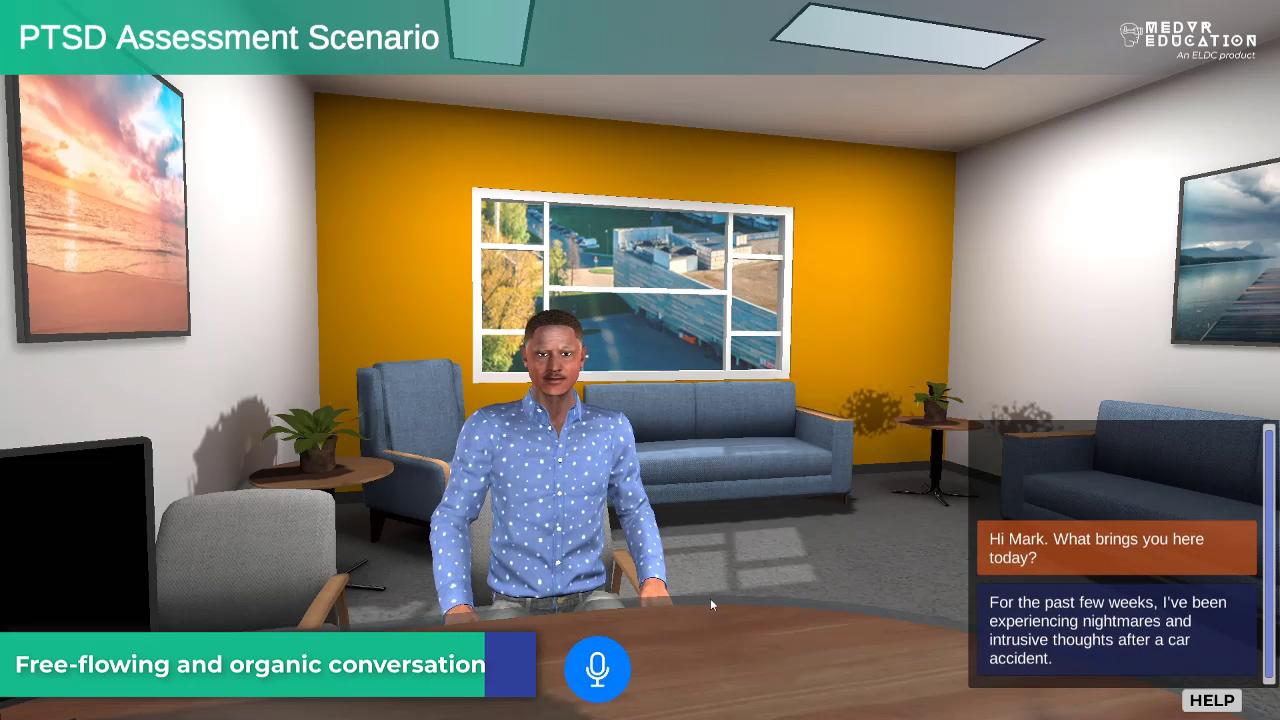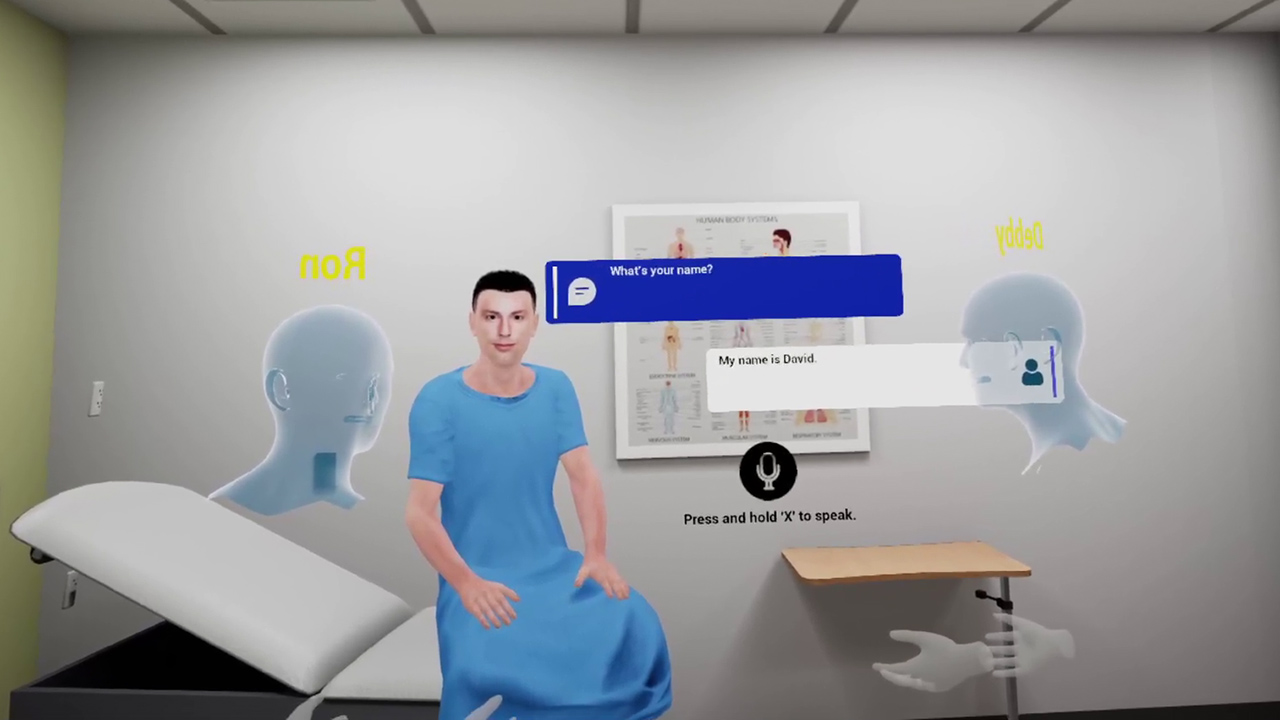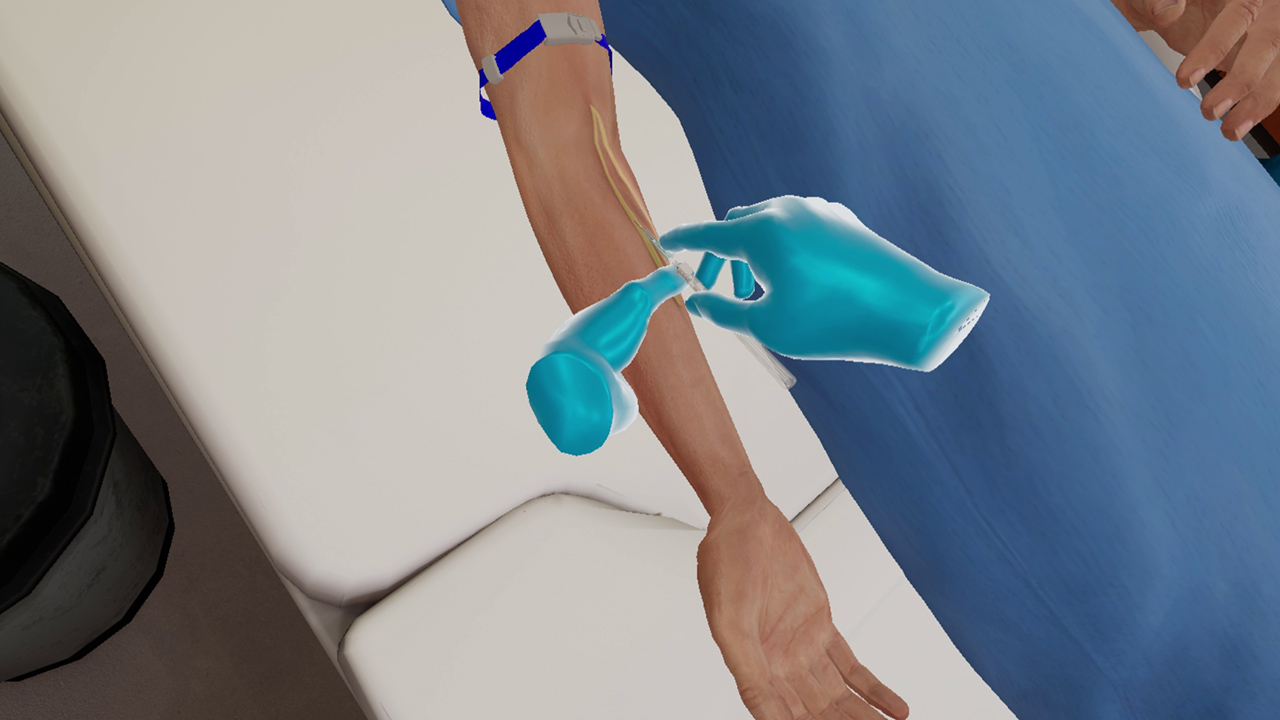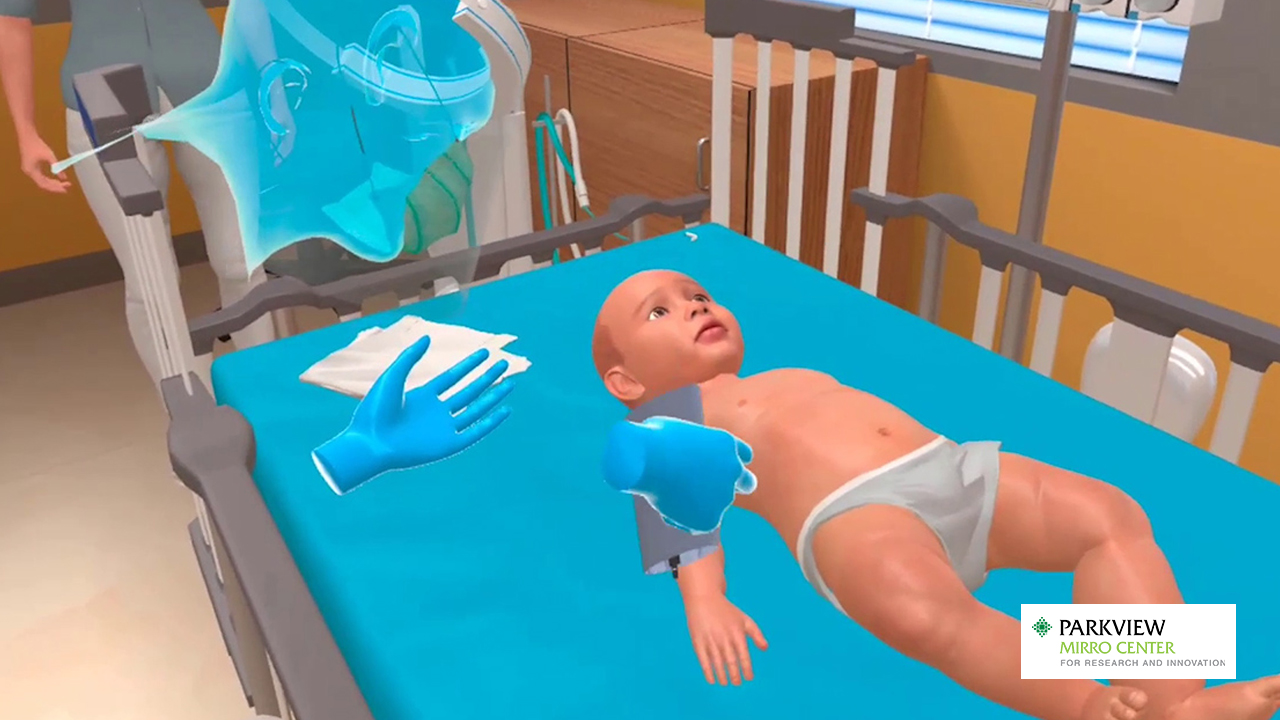
When it comes to performing a mental health assessment, some core skills come to the fore. These include a patient attitude, composed exterior, good communication skills, active listening and, to some extent, empathy. Academic qualifications get a boost when professionals exhibit these skills, which, needless to say, takes experience and training to develop. In the real world it would take months, if not years, to accomplish the level of an expert. Scenes are changing, and the advent of immersive simulations is giving a new meaning to training. We can now see training moving into the virtual world with scenarios mimicking real life set ups and circumstances. MedVR Education is actively involved in offering immersive training solutions in the field of healthcare, including mental health. It not only creates these solutions but also allows trainers to create realistic, immersive, engaging VR training with AI-enabled virtual characters. What is making this increasingly exciting is the advent of end-to-end AI. AI was good, but end-to-end is more efficient and engaging.
What is End-to-end AI
The primary goal of every VR simulation is to provide learners with practical and realistic learning opportunities that help them prepare for real life challenges. While environments could be mimicked, technological limitations posed difficulties in creating realistic conversations. However, with the emergence of Generative AI, Large Language Model (LLM) and Natural Language Processing (NLP), human-like and unique interactions can be simulated. Combine this with Conversational AI and watch the virtual character emulate a human brain. Conversation becomes natural and smooth flowing.
Technology is ever evolving and so is the case with AI. Now we have, what is known as, end-to-end AI. The extensive process of training virtual humans with intents can be done away with. In the new scenario, the machine learns all the steps between the initial input and the final output. Provide the machine with the basic information and define the desired outcome, the machine will complete the intermittent steps on its own. This means a drastic reduction in production time with no compromise on the quality.
MedVR Ed and End-to-end AI
MedVR Education has been leading the way in integrating upcoming technologies with virtual reality simulations to deliver the best training opportunities in the field of healthcare. Be it physics-based interactions or multiplayer sessions, learner priority is always the deciding factor. Same goes for AI.
MedVR Education has actively been integrating AI in its healthcare simulations where virtual patients are able to respond and react like real humans. This renders a sense of realism and enhances the engagement factor. Interactions in clinical procedures are limited but when it comes to mental health, communication lies at the heart of it.

Assessing a mental health client requires excellent communication skills, not just speaking but, very importantly, listening. As stated by the NHS (UK) a mental health counsellor should be able to make clients feel relaxed and must “have excellent interpersonal and communication skills.” The AI-Humans platform from MedVR Education offers practice in refining these crucial skills. It consists of a virtual scenario and an AI-powered virtual client. These scenarios boast of some unique features in the field of mental health assessment training.
– This virtual client is capable of holding a conversation on any given subject but is also trained to talk about a specific case.
– The learner can interact with the client and ask questions related to the mental health problem being faced by this virtual client.
– Characters and environments in the AI-Humans scenarios are created to mimic real-world scenarios which provide experiential learning opportunities.
Creating AI-enabled mental health assessment training cases on the AI-Humans platform is a very easy process. It barely calls for any technical knowledge. From case creation to publishing, it is a matter of some clicks. The steps involve:
1. Create a case: Jot down specifications about the client and their condition
2. Select case set up: Select the environment and virtual client
3. Build the case: Upload the case details on to the platform
4. Publish and upload the case: Publish the case at the click of a button and upload to any LMS
With case specifications in place, the entire process of building a case takes no more than 15 minutes.
Benefits of End-to-end AI in MedVR Ed Mental Health Training
Experience is an effective teacher. Being in a situation and living the experience helps learn better and faster as this strengthens neural connections in the brain. This further enables improved retention and appropriate application of knowledge. In the field of healthcare training, practical training is significant to acquiring skills. While clinical procedures can be simulated, mental health scenarios can be difficult to create for practice purpose. Fellow learners and actors can enact scenarios, but they have their limitations. For one, the spontaneity factor is missing, and scenarios can get repetitive. Besides, they are time consuming.
With AI-Humans’ end-to-end AI, the processes of creation and practice of mental health assessment scenarios are turning a new leaf. Creating scenarios is now far easier and practice sessions are richer and more effective.
– Custom-create the case history: In reality, every mental health case is unique, so it makes sense to train similarly. Creating new cases on the AI-Humans platform is a matter of a couple of minutes. With this facility in hand, trainers can custom create multiple cases to provide learners with a myriad of training options. With end-to-end AI, responses from the virtual clients will vary with every session. Just like in real life, every training session can be a new one for the learner.
– Maintains case background thread: Virtual clients in these scenarios are rather intelligent. In the course of the conversation, they always consider the case background and case details when responding to questions. While they are capable of talking on any random subject, these ‘clients’ remember their case and stick to it. On the contrary, if a learner digresses from the subject, the ‘client’ requests being asked questions relevant to the case.
– Remembers the context of the previous conversation: Virtual characters on the AI-Humans platform are trained on a large database. The depth of their knowledge is vast. At the same time, they are fed details of the specific case which is the primary focus. With the priorities set, a conversation with the virtual client stays very much on track. The client will ‘remember’ the context of the conversation and its answers will be in sync with the case.
– Saves time: Compared to a physical set up, the process of creating and practicing a mental health assessment session on a virtual platform is quicker. The creation process, as described earlier, is a matter of minutes. On the practicing front, all that a user needs to do is log in to the session and start practicing right away. It could be the first session or the fifth, there is not time lag between sessions.
– Conversation logs available for review: How is a user performing within a scenario? This can be gauged by the conversation between the user and the virtual character. All conversations are logged in to the system which is accessible to the admin and reviewers. Based on these conversation reviews, users can be given effective feedback. Shortcomings in the scenario, if any, can also be spotted which can be instantly fixed.
– Customizable rubrics: Each scenario is created to fulfil a certain purpose. Users can be assessed on varying factors. This would require specifically defined criteria for user performance assessment. With customizable rubrics, instructors and creators can define scenario specific customized rubrics to provide learners with personalized feedback and opportunities for enhancement.
MedVR Education realizes the potential of AI and the significant role it can play in the field of mental health training. With an aim to provide learners, novices and experienced both, MedVR Ed is leveraging the power of AI to bring about the best possible training opportunities that can benefit learners, trainers and eventually clients.
About MedVR Education:
MedVR Education is a continuing education platform, founded with the specific aim of providing immersive and engaging VR training solutions to healthcare professionals. Its dynamically growing library witnesses the addition of 4-5 new solutions every month. MedVR Education is at the forefront of implementing the latest technology in the field of VR and training, ensuring that learners get the best possible learning experience.
Contact us to know more about VR in healthcare training or visit MedVR Education to explore the various programs we offer.


